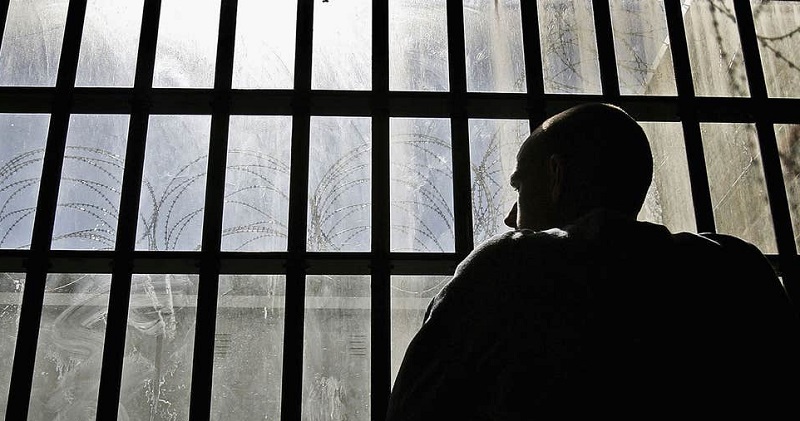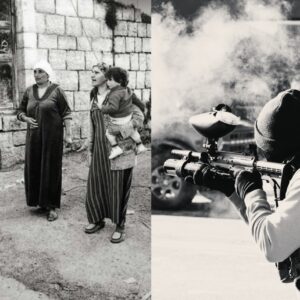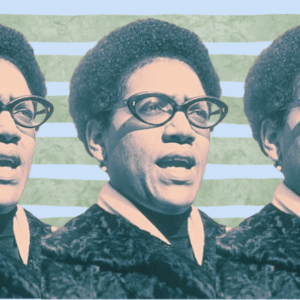
Why American Journalists Should Be Outraged About the Dozens of Palestinian Journalists Jailed in Israel
"If journalism is not a crime, then it should not be treated as a crime by any government for any journalist."
I’ve noticed that many storied journalists at legacy publications who fancy themselves to be “objective” display a significant and obvious exception: they openly embrace the cause of Wall Street Journal reporter Evan Gershkovich, who has been held in Russia on charges of espionage for more than a year.
They are right to be visibly angry. Gershkovich’s detention is outrageous. It marks the first time a United States journalist has been held in Russia since the fall of the Berlin Wall marked the end of the Cold War. (The last journalist held by the then Soviet Union, Nicholas Daniloff, was held in 1986, and only for 13 days.)
Support has been strong for Gershkovich since he was arrested in March, 2023, shortly after the beginning of the Ukraine-Russia war, on charges he’d obtained “secret information.” Reporters who usually don’t proclaim strong political positions openly have had #IStandWithEvan in their online bios or used photos of Gershkovich as their avatars. When he addressed the White House Correspondents Dinner (WHCD) in 2023, President Biden spoke of Austin Tice, an American journalist kidnapped in Syria (whose location and fate are unknown) and of Gershkovich at length.
“Everyone in this hall stands with you,” Biden said to their families, and called for their release.
“Our message is this,” Biden said: “Journalism is not a crime. Evan and Austin should be released immediately, along with every other American held hostage or wrongfully detained abroad,” drawing rapturous applause from the assembled journalists.
More recently, support for Gershkovich has been even stronger since Russia announced he will soon be tried behind closed doors, with proceedings beginning June 26. When I was flying last week, I saw a person sitting in the row in front of me with a paper copy of the Wall Street Journal, which had a #IStandWithEvan advertisement taking up an entire page in the front section.
But if the mainstream American press has been loudly supportive of Gershkovich, they have been silent about the dozens of Palestinian journalists who are similarly being held for the “crime” of practicing journalism.
But if the mainstream American press has been loudly supportive of Gershkovich, they have been silent about the dozens of Palestinian journalists who are similarly being held for the “crime” of practicing journalism.
For in addition to the 150 or so Palestinian journalists who have been murdered since October, there is an even less reported crisis facing Palestinian journalists (in Gaza, Israel, the occupied West Bank, and occupied East Jerusalem): they are being kidnapped, detained, tortured and held hostage by U.S. backed Israel.
As Arab News and others reported last week, the Palestinian Prisoner Society has said that the “number of Palestinian journalists detained by Israel since the start of the war in Gaza in October now stands at a record high of 80,” and “at least 49 are still being held.”
The International Federation of Journalists reports nearly identical statistics, based on data from the Palestinian Journalists Syndicate, which place the current journalists jailed by U.S.-backed Israel at 50, with 76 detained since October 7, 2003.
Arab News added “that several journalists are being held without charge or trial under the Israeli policy of administrative detention, including three of the four women in custody.” Additionally, “A fifth woman, Somaya Jawabra, who was arrested while seven months pregnant, has been under house arrest since November and remains subject to strict restrictions.”
Middle East Eye reported that one of the detained women journalists, Rula Hassanein of Bethlehem, has been held for months, even though her prematurely born daughter relies solely on her breast milk and may starve to death.
Another of the women journalists, Wafa news agency reporter Rasha Hirzalla “was summoned for investigation at a detention centre by Israeli intelligence on Sunday, where she was informed she would be detained for 72 hours,” Middle East Eye reported, but has since been told she will be held at least another two weeks.
If any American journalists are worried about what could be happening to Evan Gershkovich while he’s incarcerated in Russia (a country where, other than in matters involving the International Space Station, the United States has very little diplomatic sway or good lines of communication), then they should be terrified of what could happen to journalists held in custody by the U.S.-backed Israel (a country in which the U.S. could have a lot of sway, if it chose to use it).
In March, Al-Jazeera Arabic reporter Ismail al-Ghoul was held for 12 hours by the occupation military. His colleague Hani Mahmoud reproted al-Ghoul was “tortured, beaten and detained by the Israeli military along with his crew member on the ground.” Also, al-ghoul reported himself that even after he was released, his captors “destroyed media equipment and arrested journalists gathered in a room used by media teams” and said other “journalists were stripped of their clothes and forced to lie on their stomachs as they were blindfolded and their hands tied.”
In April, Diaa al-Kahlout, the Gaza bureau chief of Al-Araby Al-Jadeed, spoke to the Committee to Protect Journalists about being tortured during the two months he was held hostage. His abduction began when he was kidnapped in December, which was captured in a viral image of him in his underwear. He was bound, assigned a de-humanizing number (059889), lost 100 pounds, interrogated, blind-folded for more than a month, and “subjected to torture called ‘ghosting’ daily, which involves being handcuffed with the hands upward or behind the back while blindfolded, in addition to significant psychological torture alongside physical torture.”
Painfully, al-Kahlout described to CPJ how he was driven to partial blindness:
The most significant issue I face is with my vision, as I cannot see well due to being blindfolded for 33 consecutive days and nights. My vision was excellent before my arrest. In detention, we were beaten and ‘ghosted’ if any part of our eyes showed. I have severe chest inflammation and acute vertebral inflammation, resulting in leg pain, in addition to malnutrition, and lack of sleep. Before my travel, the cracks in my skin caused by detention conditions resulted in pus and severe pain. In addition to the bruises still on my body, I can’t sleep or rest normally since my release.
Right now, these are the kinds of conditions about 50 Palestinian journalists are being subjected to. And then, there’s the 150 Palestinians who have just been killed outright, including Palestinian-American journalist Shireen Abu Akleh, who was murdered by a US-backed Israeli sniper in 2022.
Yet, I cannot recall any mention of Akleh at the WHCD the year after she was killed, or of any the 50 journalists being held hostage at this year’s WHCD. Nor can I think of a single member of the mainstream American media having an #IStandWithGazaJouranlists or a #RememberShireen hashtag in their Twitter bios—nor any of them using her picture as their profile image, nor seeing any full-page ads in the Wall Street Journal demanding the release of our 50 colleagues held in U.S.-funded hellhole prisons in the Negev desert.
I can’t think of a single member of the mainstream American media having an #IStandWithGazaJouranlists or a #RememberShireen hashtag in their Twitter bios.
In fact, I imagine that if any reporter for a big American newspaper flashed sympathy for Rula Hassanein or Rasha Hirzalla as proudly as they do for Evan Gershkovich, they’d be fired for not being “objective.” They likely be driven out of the industry for good.
Heck, I have not even seen a single mainstream journalist write about the horrifically sad case of Linda Torado, an independent journalist who was shot in the head by the Minneapolis police covering the George Floyd uprising in 2020, had one eye blown out of her head by a projectile, and is now dying in hospice due to irreversible brain damage.
For most U.S. journalists, I guess they only feel comfortable publicly standing with their colleagues if their colleague has been harmed by an enemy of the American empire.
Still, if “journalism is not a crime,” then it should not be treated as a crime by any government for any journalist. Not for American journalist Evan Gershkovich. Nor for Australian journalist Julian Assange. Nor for Palestinian American Shireen Abu Akleh. Nor for any of the 150 Palestinian journalists murdered and the nearly 50 journalists currently being detained by U.S.-backed Israel.
Steven W. Thrasher
Steven W. Thrasher, PhD, CPT, a journalist, social epidemiologist, and cultural critic, holds the Daniel Renberg chair at the Medill School of Journalism, and is on the faculty of Northwestern University’s Institute of Sexual and Gender Minority Health and Wellbeing. A former writer for the Village Voice, Scientific American and the Guardian, Thrasher is the author of the critically acclaimed book The Viral Underclass: The Human Toll When Inequality and Disease Collide. [Photo by C.S. Muncy]



















